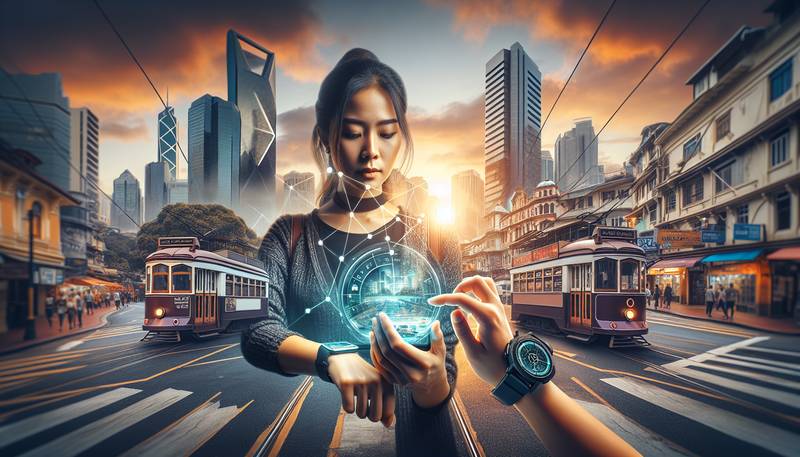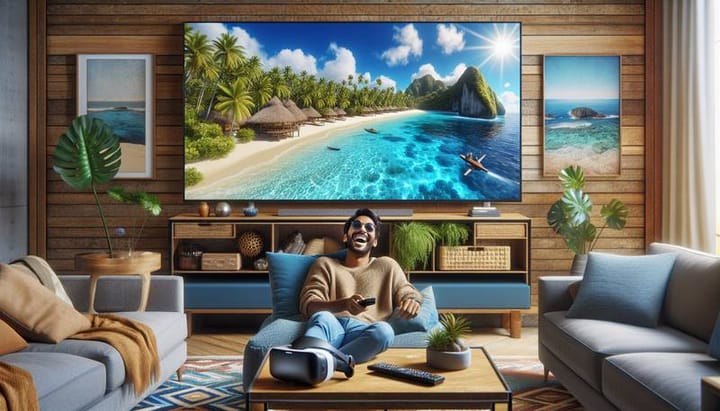Smart Travel: How Technology is Changing the Way We Explore

Traveling has always been an essential part of human experience. Whether it's a trip across town or a journey to the farthest corners of the globe, people have always been drawn to the allure of exploration. But in recent years, technology has revolutionized the way we travel, making it more convenient, efficient, and enjoyable. From booking flights and accommodations to planning itineraries and navigating unfamiliar places, technology has made it possible for us to explore the world in ways we never thought possible.
The Rise of Online Travel Agencies
Gone are the days of flipping through travel brochures and visiting brick-and-mortar travel agencies. Now, with the advent of online travel agencies (OTAs), travelers can easily book flights, hotels, and other travel-related services with just a few clicks. OTAs like Expedia, Booking.com, and Airbnb have transformed the travel industry by offering a one-stop-shop for all travel needs. They provide travelers with the convenience of comparing prices, reading reviews, and making reservations from the comfort of their own homes.
Mobile Technology and Travel Apps
With the rise of smartphones, mobile technology has become an indispensable tool for travelers. Travel apps like Google Maps, TripAdvisor, and Uber have revolutionized the way we navigate new places. These apps provide real-time information on local attractions, restaurants, and transportation options, making it easier to plan and enjoy our trips. Furthermore, with the ability to check-in online and use digital boarding passes, travelers can save time and avoid long lines at the airport.
Smart Luggage and Travel Gear
Technology has also transformed the way we pack and carry our belongings. Smart luggage and travel gear are now equipped with features like GPS tracking, built-in scales, and USB charging ports. These high-tech bags allow travelers to keep their belongings secure, organized, and powered up while on the go. Additionally, wearable technology like smartwatches and fitness trackers can help travelers stay connected and monitor their health and activity levels during their trips.
The Impact of Social Media on Travel
Social media has also had a significant impact on the way we travel. Platforms like Instagram, Facebook, and YouTube have become virtual travel diaries, with users sharing their experiences and inspiring others to explore new destinations. The rise of influencer marketing has also led to a surge in travel trends, with influencers promoting exotic locations, unique accommodations, and once-in-a-lifetime experiences. Social media has not only made travel more accessible but also more aspirational.
Moreover, travel bloggers and vloggers have become essential sources of information and inspiration for travelers. They provide valuable tips, reviews, and insights that can help others plan their trips more effectively. Social media influencers have also become key players in the travel industry, with many destinations and travel brands partnering with them to reach a wider audience.
Virtual Reality and Augmented Reality in Travel
Virtual reality (VR) and augmented reality (AR) are also changing the way we experience travel. VR allows users to explore destinations and attractions in 3D, providing an immersive experience that can help travelers plan their trips more effectively. AR, on the other hand, enhances the travel experience by overlaying digital information onto the real world. For example, AR apps can provide travelers with information about landmarks, historical sites, and local culture in a fun and interactive way.
Artificial Intelligence and Travel
Artificial intelligence (AI) is another technology that is changing the game for travelers. AI-powered chatbots and virtual assistants like Siri and Alexa can help travelers book flights, find accommodations, and get personalized recommendations. These intelligent systems can also provide real-time updates on flight delays, weather conditions, and other travel-related information. AI is also being used to improve the customer service experience in hotels, with robots and virtual concierges assisting guests with their needs.
The Future of Smart Travel
As technology continues to evolve, the future of smart travel looks bright. We can expect to see even more innovative solutions that will make travel more accessible, personalized, and sustainable. For example, biometric technology is set to revolutionize the way we check-in for flights and enter countries, with fingerprint and facial recognition systems making the process more secure and efficient.
Additionally, the rise of eco-friendly travel technology like electric and solar-powered vehicles will help reduce the carbon footprint of travel. And with the increasing popularity of experiential travel, we can expect to see more immersive and interactive technologies that will allow travelers to connect with destinations on a deeper level.
Conclusion
In conclusion, technology has transformed the way we travel in countless ways. From the convenience of online travel agencies and mobile apps to the immersive experiences provided by virtual and augmented reality, technology has made it possible for us to explore the world like never before. As we continue to embrace these advancements, we can look forward to a future of travel that is smarter, more convenient, and more sustainable.


